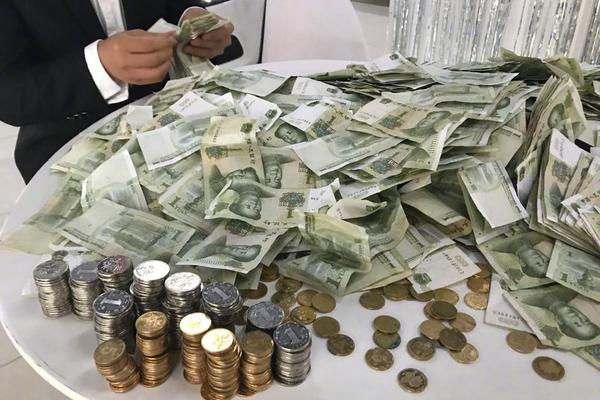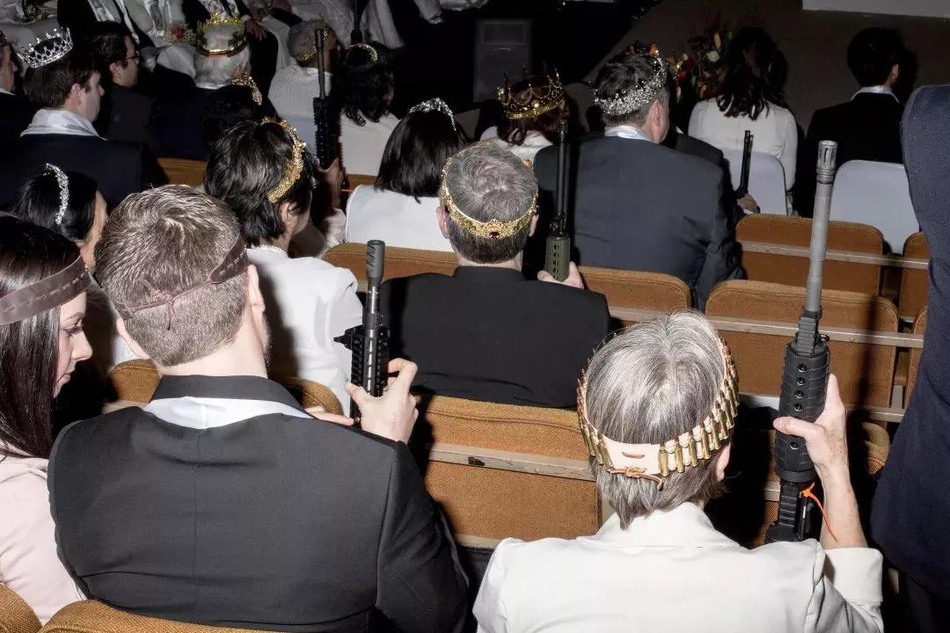When it comes to QAnon conspiracy theorists, Facebook is wagging a finger with one hand, and slipping some enablers cash with the other.
According to ProPublica's database of congressional contributions, in September, Facebook donated money to 45 members of Congress and PACs from both sides of the aisle. Shortly thereafter, three of the U.S. representatives on Facebook's list went on to vote "no" on a congressional resolution to condemn QAnon and its conspiracy theories.
We're not saying that there's a causal link here. And Facebook clearly makes political contributions widely to people both willing and not so willing to condemn QAnon. But the contrast between Facebook's public stance against the spreading of conspiracy theories, and the private money it hands out is a stark one.
Rep. Tom Malinowski introduced the bill on October 2 after Malinowski himself received death threats from QAnon followers. The resolution had bipartisan support, and passed 371–18. To be clear, the members of Congress who voted against the resolution declined to condemn a group that thinks a cabal of "deep state" politicians and Hollywood people run a global child sex ring.
Days after the resolution passed, Facebook issued a ban against QAnon conspiracy theory groups and accounts. The ban was an escalation of policies that banned QAnon accounts and groups that promoted violence. QAnon has led to real-world violence, and promotes anti-semitism and anti-vaccination.
That action is what makes Facebook's campaign contributions... interesting. Facebook donated $3,000 to Rep. Drew Ferguson, $2,000 to Rep. Michael Burgess, and $500 to Rep. Jeff Duncan, who all voted against the resolution. Thanks for helping these stellar government employees, Facebook!
TopicsFacebookSocial MediaPolitics
(责任编辑:休閑)
 Donald Trump's tangled web of Russian influence
Donald Trump's tangled web of Russian influence Climate change could raise the cost of beer
Climate change could raise the cost of beer The country watched on planes, in offices as Christine Blasey Ford testified
The country watched on planes, in offices as Christine Blasey Ford testified Saturday's Fat Bear Week voting pits a bully against a chunky favorite
Saturday's Fat Bear Week voting pits a bully against a chunky favorite Fyvush Finkel, Emmy winner for 'Picket Fences,' dies at 93
Fyvush Finkel, Emmy winner for 'Picket Fences,' dies at 93Twitter grants everyone access to quality filter for tweet notifications
 Twitter introduced two features Thursday in an effort to give users more control on what notificatio
...[详细]
Twitter introduced two features Thursday in an effort to give users more control on what notificatio
...[详细] Director Julius Avery's Overlordscreened for the first time at Fantastic Fest on Saturday, and the j
...[详细]
Director Julius Avery's Overlordscreened for the first time at Fantastic Fest on Saturday, and the j
...[详细]10 kids podcasts for bedtime, road trips, and non
 Welcome toSmall Humans, an ongoing series at Mashable that looks at how to take care of – and
...[详细]
Welcome toSmall Humans, an ongoing series at Mashable that looks at how to take care of – and
...[详细]Meghan Markle and Prince Harry find inner peace in this 'anti
 It's been an understandably busy few days for Prince Harry and Meghan Markle, who are in the midst o
...[详细]
It's been an understandably busy few days for Prince Harry and Meghan Markle, who are in the midst o
...[详细]This company is hiring someone just to drink all day
 For the non-Don Drapers among us, drinking at work is a far-off fantasy. But UK company ILoveGin wan
...[详细]
For the non-Don Drapers among us, drinking at work is a far-off fantasy. But UK company ILoveGin wan
...[详细]Snapchat releases deeply integrated voter registration portal
 Snapchat is the latest social network to roll out a voter registration initiative in the run up to t
...[详细]
Snapchat is the latest social network to roll out a voter registration initiative in the run up to t
...[详细]Watch Pattie Gonia, the world's first backpacking queen, strut
 This post is part ofHard Refresh, a soothing weekly column where we try to cleanse your brain of wha
...[详细]
This post is part ofHard Refresh, a soothing weekly column where we try to cleanse your brain of wha
...[详细]Climate change could raise the cost of beer
 Some 10,000 years ago, after the frigid Ice Age ended, humans tamed the nutritious grain, barley. It
...[详细]
Some 10,000 years ago, after the frigid Ice Age ended, humans tamed the nutritious grain, barley. It
...[详细]Watch MTV's Video Music Awards 2016 livestream
 It's MTV Video Music Awards night. Are you ready?Kanye's going to be there, and he's going to say th
...[详细]
It's MTV Video Music Awards night. Are you ready?Kanye's going to be there, and he's going to say th
...[详细]The unannounced Pixel 3 XL is already for sale in one store
 Google's big Pixel event is a couple days away and the leaks just reached a new level of ridiculous.
...[详细]
Google's big Pixel event is a couple days away and the leaks just reached a new level of ridiculous.
...[详细]Tyler, the Creator helped Frank Ocean celebrate 'Blonde' release in a delicious way

This drag queen's Voldemort impersonation is going viral and it's amazing
